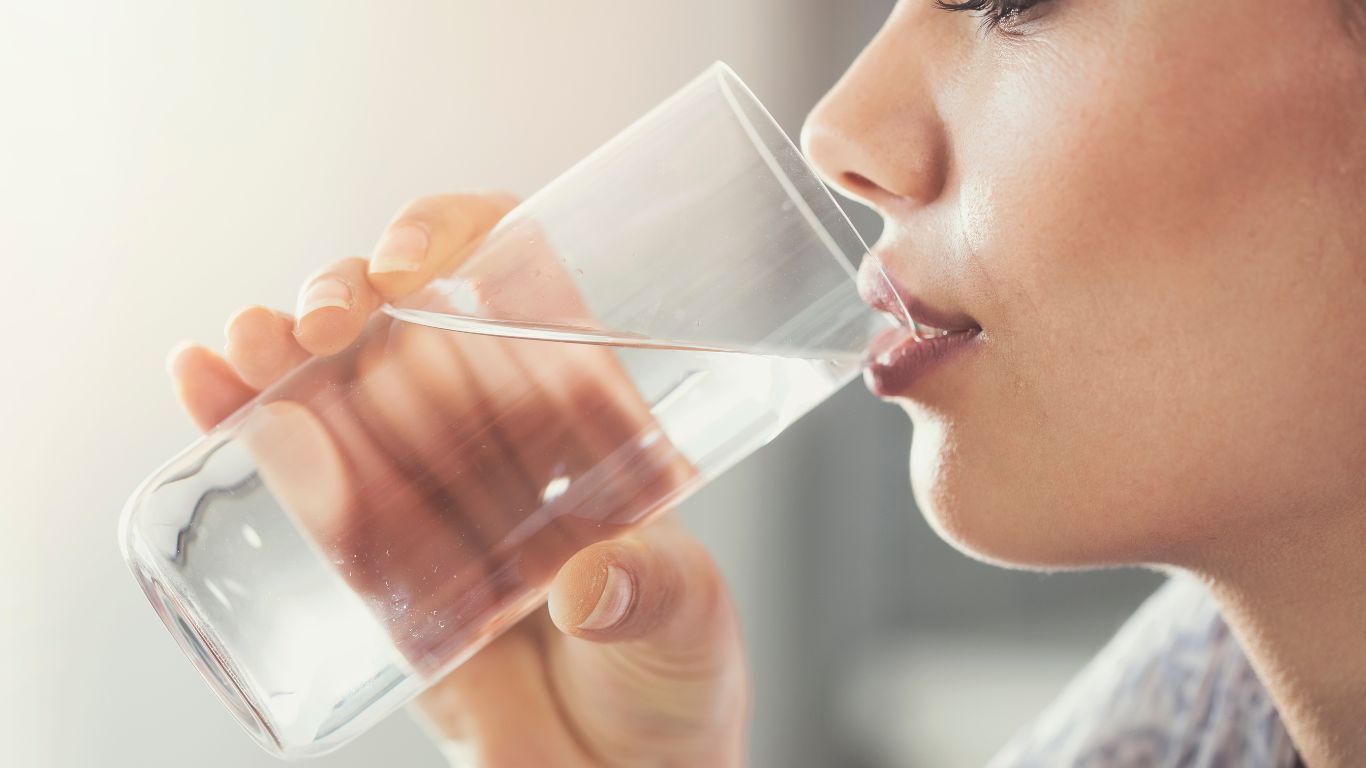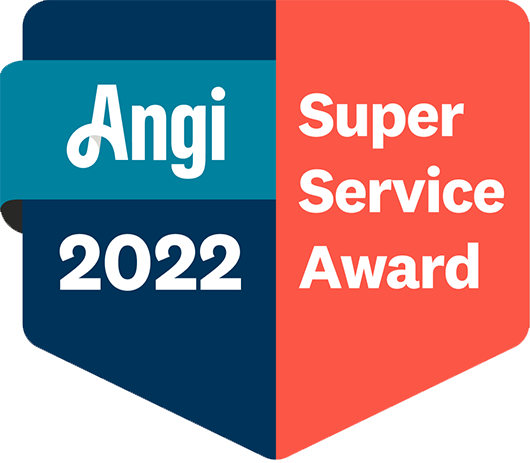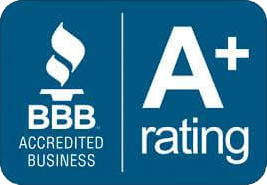Are you bothered by the taste of your water? When the water from your tap tastes unpleasant, it can become a genuine concern, impacting not only your desire to drink more water – which is important – but also your overall well-being and health. In this blog, we’ll delve into the reasons why tap water might have an off-putting taste, how hard water contributes to this issue, and discover actionable steps to enhance both the taste and quality of your water.
Why Does My Tap Water Taste Bad?
The taste of your tap water can be influenced by a variety of factors, ranging from the source of your water to the pipes it travels through to reach your tap.
Common complaints include:
- A chlorine taste, which is used in water treatment to kill harmful bacteria
- A metallic taste, which can be due to the presence of hard water (calcium and magnesium) or due to old pipes.
- A chalky taste, similar to the above, which can be due to hard water particles
- A rotten egg smell or taste, which can be due to natural elements like sulfur or sediment in the water.
Each of these factors not only affects the water’s taste but could also impact your health and the health of your plumbing system. And remember, the taste of your water will also affect anything with water in it – coffee, tea, or other food and beverages.
The Role of Hard Water and a Practical Solution
In many areas, such as Long Island, hard water presents a significant challenge. Rich in minerals like calcium and magnesium, hard water not only imparts a chalky or metallic taste as discussed above, but it also contributes to the accumulation of mineral deposits in pipes, reduces appliance efficiency, and leaves skin and hair feeling dry and lackluster.
One effective solution is installing a whole-home water softening system, such as Simply PURE Water Filtration’s whole-home water softening solution. These systems will work to remove the hard water particles, leaving softer water behind. Not only will this improve the taste of your water, but it will also protect your appliances, reduce soap scum, and it will improve your skin and hair health.
Ways to Improve the Taste of Your Water
1. Test Your Water
Understanding the contaminants present in your water is paramount as it serves as the initial step towards effective water filtration or softening. This knowledge will enable you to select the most suitable system tailored to your specific needs. Simply PURE Water Filtration, Inc. provides a free on-site water analysis & consultation (with the purchase of any system), offering personalized guidance based on the unique composition of your water.
2. Opt for Natural Enhancements
Explore natural methods to enhance the taste of your water. Consider infusing your water with slices of fresh fruits, such as citrus or berries, or fragrant herbs like mint or basil. These natural additives not only impart delightful flavors but also introduce additional health benefits through their antioxidant and nutrient content.
3. Carbonation Devices
Invest in a home carbonation device, such as a soda maker or carbonation system. These devices are designed to carbonate water quickly and easily, providing you with sparkling water on demand. Most carbonation devices come with a reusable carbonation cylinder that can be refilled or exchanged when empty.
4. Chill Your Water
Sometimes, the simplest solutions can be the most effective. Chilling your water before drinking can enhance its taste. Cooler temperatures can make water taste fresher and more refreshing. Use a glass bottle or pitcher for storing water in your refrigerator, as plastic containers can sometimes impart undesirable flavors.
5. Consider a Reverse Osmosis System
If your primary concern is purity and taste, a reverse osmosis system installed under your sink could be the best option. Simply PURE Water Filtration’s reverse osmosis systems are efficient at removing a wide range of contaminants, ensuring that your water tastes great. This system pushes water through a semi-permeable membrane, filtering out virtually all contaminants, including those responsible for bad tastes and odors. Reverse osmosis systems can remove particles as small as individual ions, ensuring that your water is not just safe to drink but also delicious.
By incorporating these additional methods into your water treatment regimen, you can further optimize the taste and quality of your drinking water, providing you and your family with a continuous supply of pure, refreshing hydration. And, as always, you have to first make sure that your underlying water supply is both contaminant-free and safe. That’s where we at Simply PURE Water Filtration, Inc. come in. As Long Island’s Only Certified Master Water Specialist, we’ll help you get the water filtration system you need, installed the right way and with no hassles. Contact us today to start improving your water quality.
About Simply PURE Water Filtration Services
Living in and serving the Long Island community, we strive to make sure everyone has access to clean, healthy water. We have the experience, knowledge, and industry-leading technology to provide clean water solutions for water impurities, contaminants, hard water, bad tasting/odors, well water, acidity & pH regulations.
Proud members of the WQA (Water Quality Association), and the EWQA (Eastern Water Quality Association), we adhere to strict guidelines and the WQA code of ethics. As a Pentair True Blue Partner and Authorized Distributor of Pentair Products, there’s nothing comparable to the performance, and efficiency of our whole house purification systems, water softeners, neutralizers, whole-house filters, and alkaline reverse osmosis systems for drinking in the convenience of your home.
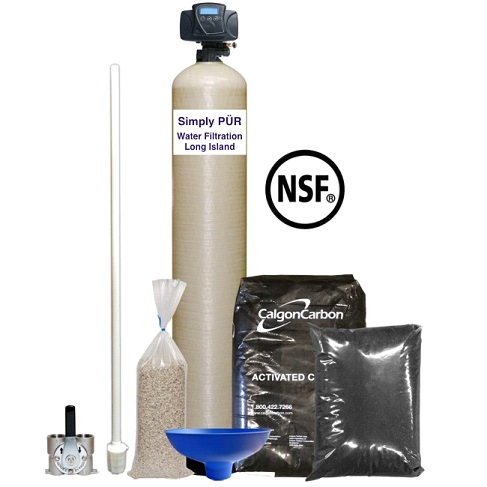
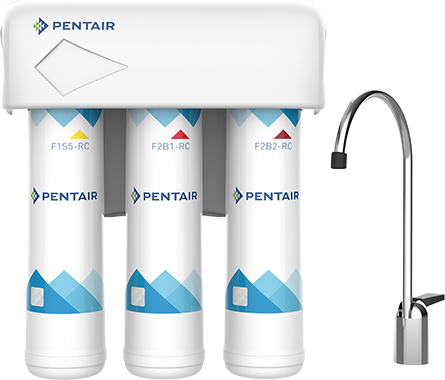
Our products are all NSF / ANSI certified, meeting the highest safety standards and quality performance. Providing our community with only the best experience of high quality water that’s Simply PURE from our family to yours!
Simply PURE utilizes accurate testing methods before and after system installation, as well as annual maintenance of all your water treatment equipment. Our Revolutionary Custom Built Water Treatment systems upon the completion of a Free In-Home Water Analysis, or an in-depth Comprehensive Water Analysis of your choice sent to our Certified Laboratory.

